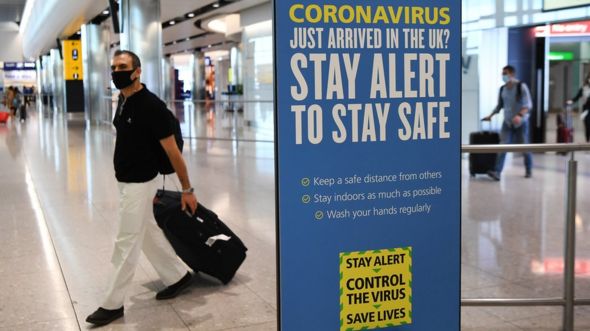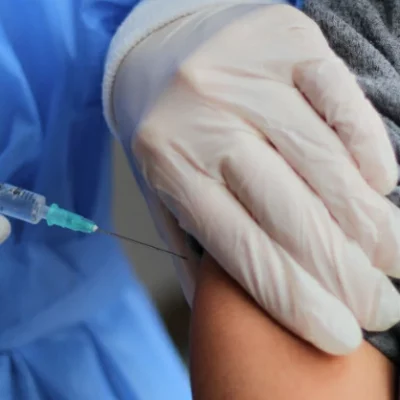Covid-19: England arrivals to be able to cut quarantine with private test
The rules will come into force from 15 December and the tests from private firms will cost between £65 and £120.
Grant Shapps said the scheme would “bolster international travel while keeping the public safe”.
The travel industry welcomed the policy but described it as “long overdue“.
It follows Boris Johnson’s announcement that England will come under “toughened” three-tiered regional restrictions when the lockdown ends on 2 December.
Under the new travel rules, passengers who arrive from a foreign destination not on the government’s travel corridors list will still need to enter self-isolation.
However, if they pay for a test after five days and it comes back negative, they will no longer need to self-isolate.
Results will normally be issued in 24 to 48 hours. This means people could be released from quarantine six days after arrival.
Mr Shapps said: “Our new testing strategy will allow us to travel more freely, See loved ones and drive international business. By giving people the choice to test on day five, we are also supporting the travel industry as it continues to rebuild out of the pandemic.”
Scotland and Northern Ireland are considering a similar scheme while Wales said it was “supportive in principle of the proposals for a Test and Release scheme”.
A Welsh government spokesperson said: “We will need to consider the data and evidence underpinning this scheme before making any decisions on changing international travel restrictions in Wales.”
Scotland said it was working with the main commercial airports in Scotland and clinical advisers to understand the risks and benefits of the scheme as well as the capacity of private sector labs to conduct testing to a minimum standard.
A spokesperson added: “It is important that any travellers arriving in the UK understand, and respect, the different restrictions in place in the different nations.”
That means that if someone is flying into England but their final destination is an address in Scotland, it would not be possible for passengers to take the test in England.
Northern Ireland’s Department of Health said: “Consideration is currently being given to the implementation of testing scheme which could potentially allow those who have arrived in Northern Ireland from a non-exempt country to end their self-isolation following receipt of a negative test, which would be privately provided.”
A step in the right direction – that’s how airlines are describing the government’s decision to ease the quarantine regime.
The industry is in survival mode, desperate for money so anything that could open up routes and bring in much-needed cash is being welcomed. And this does raise the prospect of Christmas holiday ticket sales.
But they say the new plan is still far from perfect.
Passengers will still have to go into quarantine, and realistically, a test on day five is still likely to leave them in isolation for the best part of a week in total, as they wait for the results to come through.
There’s also the cost. The test has to be done privately, and typical prices range from £100-150. For a family of four, for example, that’s a sizeable extra chunk on the cost of a winter holiday.
What airlines are calling for is something more radical. They want a pre-departure testing regime, or a system of quick, regular and cheap tests – which would allow quarantine to be avoided altogether, until a vaccine is ready.
But they say this announcement means there is, at least, some light at the end of the tunnel.
Tim Alderslade, chief executive of Airlines UK, the industry association representing UK-registered carriers, said the announcement provided “light at the end of the tunnel” for the aviation industry and people wanting to go on holiday.
He predicted demand for air travel will “tentatively return” following the decision but said a pre-departure testing regime that can completely remove the need to self-isolate is “the only way we’re going to comprehensively reopen the market”.
Michael O’Leary, Ryanair’s chief executive, told BBC Radio 4’s Today programme quarantine for arrivals was a “fig leaf that doesn’t work” and that testing for travellers coming to England should happen before departure, rather than after arrival.
He also ruled out requiring proof of vaccination for passengers on short-haul routes after Australian carrier Qantas said it would require it for travellers.







